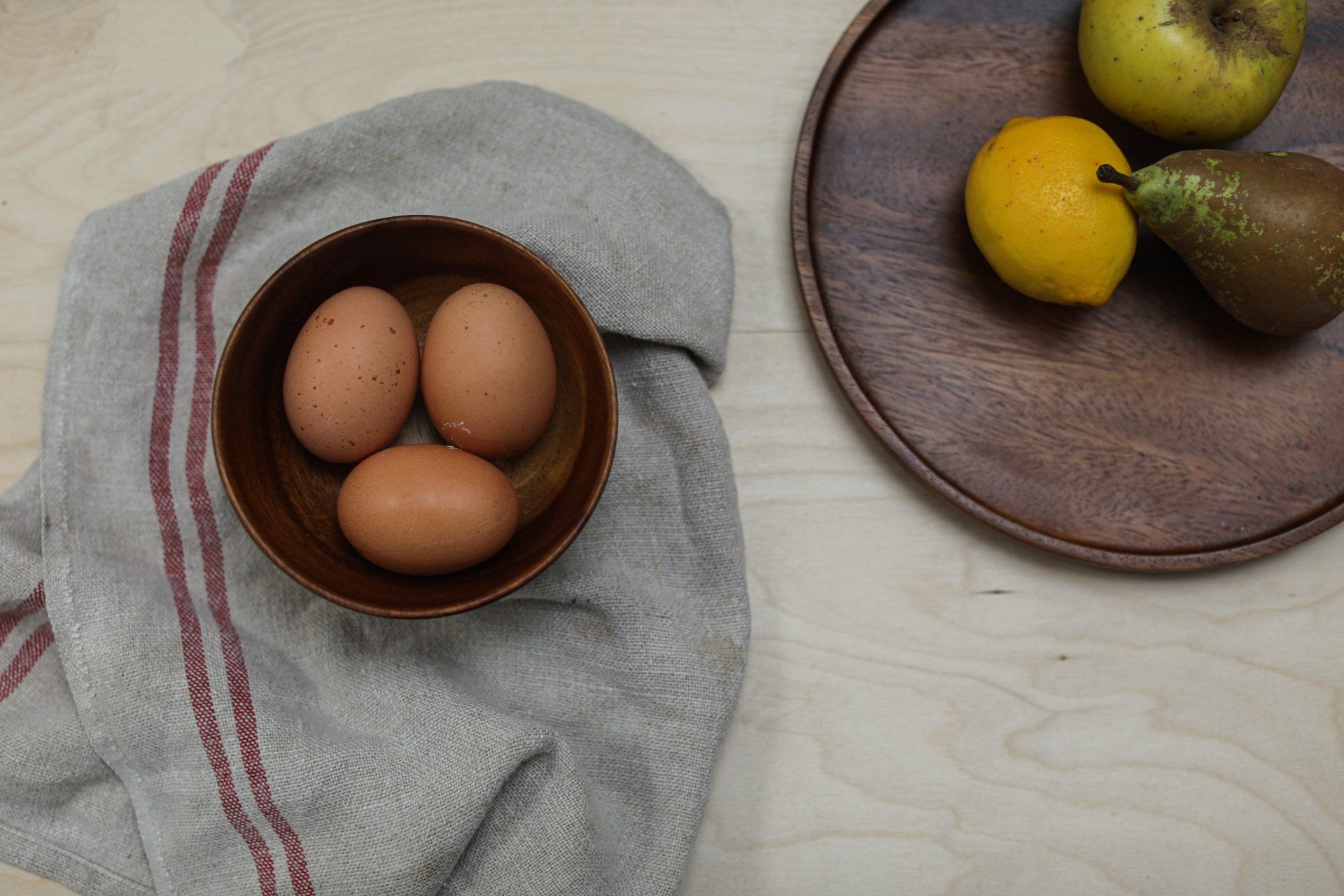Boost Your Egg Quality I.Q.

Because we work so closely with physicians, we have to be scrupulous about any suggestion that Traditional Chinese Medicine, massage, nutrition and yoga can impact egg quality because there is very little clinical evidence to support this assertion. That said, there is very little clinical research that has actually been done to examine the impact of holistic treatments on egg quality. Perhaps that’s because the issue is low on our national health priorities list…
Or maybe it’s not. It actually turns out that there’s great deal of concern about egg quality in U.S. women – for a couple of reasons.
First, infertility seems to be on the rise in the U.S. and this increase is not wholly accounted for by maternal age, leading researchers to wonder if something in our lifestyle or environment is impairing fertility. Second, there is concern that poor egg quality may be partially responsible for increases in chronic diseases like heart attacks, diabetes and chronic high blood pressure. In 2002 the National Institutes of Health introduced the Female Health and Egg Quality Initiative, to address the concern that poor egg quality may be responsible for difficulties in attaining and maintaining a healthy pregnancy for a significant number of females. In addition, certain “adverse health situations” in women prior to or around the time of fertilization have been identified as risk factors for poor egg quality: poor nutrition, extreme exercise, smoking, hyperglycemia/insulin resistance, obesity and, potentially, inflammation. (To follow this initiative you can visit the NIH’s National Cooperative on Female Health and Egg Quality program).
Pulling Down the Moon’s E.Q. I.Q. (a.k.a. Egg Quality Intelligence Quotient)
It’s both sobering and empowering that our lifestyle behavior before conception may dictate the health of our future kids. At Pulling Down the Moon we take a long-range view of improving egg quality based on a few basic assumptions:
- Women are born with all the eggs they’ll ever have. At the time of puberty, dormant egg follicles begin a cycle of monthly maturation that causes multiple follicles to mature and results in the release of an oocyte from a single “lead follicle.” If pregnancy does not result from ovulation, menstruation occurs. The cycle repeats until menopause somewhere around the age of 50.
- Human egg development (folliculogenesis) takes place over a period of about a year, or 13 menstrual cycles. During this time the follicles wake from their dormant state and prepare for recruitment. During the last 120 days of this period the maturation process quickens. The final few days of maturation are action packed as the egg “slims down” to 23 chromosomes through a highly energy-intensive process that prepares the oocyte to receive 23 chromosomes from a sperm to make a healthy embryo with 46 chromosomes.
- When the ovaries do not respond to the usual hormonal cues of the menstrual cycle, in particular the signal of Follicle Stimulating Hormone (FSH), they are considered to be poor quality. In Assisted Reproduction settings, egg quality is generally diagnosed by testing a woman’s FSH levels as well as her response to ovarian stimulating medications.
- While age is still the major determinant of egg quality, it is not the only factor at play. The health of the developing eggs and their ability to respond to internal or external hormonal stimulation may be affected by poor blood flow, stress, toxic substances like cigarettes and environmental contaminants, inflammation caused by stress or diet, hormonal imbalances and potentially intake of unhealthy dietary fats.
A Role for Holistic Therapy
At Pulling Down the Moon we work with many women who have been told they have diminishing ovarian reserve/poor egg quality. Upon receiving this challenging diagnosis, some women feel ready to move on to “second solutions” like donor-gamete programs. Others, however, are interested in exploring ways to improve the quality of their own eggs before taking other measures. If you’re a woman seeking to improve the quality of your eggs, here are a few tips to boost your E.Q.I.Q.:
- Making a significant impact on egg quality is not a short-term project. At the Moon we target a minimum of 3 months, but in actuality, working within the 13 month period of egg development is optimal.
- Acupuncture and herbal treatment have been used for thousands of years to help regulate the menstrual cycle. Intricate cycles of growth hormones and growth factors occur in the ovaries in response to commands from the hypothalamus and pituitary gland throughout the entire maturation process. By helping to regulate and balance the hormone cycle, techniques from Traditional Chinese Medicine are thought to restore an oocyte’s ability to respond to hormonal cues. Acupuncture can also stimulate blood flow to the ovaries.
- Revamp your diet to eliminate foods that cause inflammation (refined sugar, corn-fed red meat, many preservatives and nitrates, omega-6 fatty acids and transfats. Chronic inflammation has been shown to decrease our cells’ ability to respond to hormonal cues (as in the case of diabetes) and may play a role in conditions like Polycystic Ovarian Syndrome.
- Work with a fertility nutritionist. Nutritional supplementation for egg quality, eating an anti-inflammatory/hypo-allergenic diet (like our ART Recovery/Prep Program) and improving gut function can play an important role in hormonal health.
- Eliminate toxins from your living environment including substances such as parabens (found in cosmetics), phthalates (found in pliable plastics), Bisphenol A (in plastics), PCBs and PBDEs (coolants, flame retardants). These chemicals can mimic our body’s reproductive hormones and are associated with infertility and cancer.
- Reduce stress. Stress is associated with hormonal disruption and inflammation. Learning to relax is a key part of re-establishing hormonal balance in our body.
- Maintain a low-impact, moderate-intensity exercise program that emphasizes gentle cardiovascular exercise like walking or swimming, and yoga to promote flexibility and strength. In contrast to high intensity activities like running, spinning and impact aerobics, yoga encourages blood flow into the internal organs by releasing tight musculature in the hips, groin and low back while stimulating our body’s parasympathetic “rest, digest and nest” hormone response.
Here is a simple breathing meditation that uses mudra (hand yoga) to strengthen the ovaries and developing oocytes. In yoga, each of the fingers has meaning and is associated with a particular organ system. The thumb, which is the focus of this meditation, is thought to restore equilibrium in weak or challenged body parts. We use this mudra and visualization to send light and warmth to our ovaries.
Sit comfortably or lie down. Wrap the thumb of your right hand with the four fingers of the left hand and rest the left thumb along the inner edge of your right hand (it will sit next to the index finger of the right hand). Focus your mind on your ovaries. Now visualize a light burning just below your navel. With each exhale, direct light down to your ovaries. For the first several breaths, you can visualize dark clouds of smoke escape from the ovaries as you breathe light into them and expel imbalance and negative energy from this part of the body. After a few breaths, concentrate solely on the light that warms and illuminates the ovaries and oocytes. Repeat holding the other thumb.
Discuss With Us
Our Latest Resources

Questions or comments?
We would love to hear from you!
Fill out our form below and we will be in touch. We are open 7 days/week.
Footer Form
Thank you for contacting Pulling Down the Moon.
We will get back to you as soon as possible.
Oops, there was an error in sending your message.
Please try again later.
Visit Our Centers
Chicago (River North)
Highland Park
Resource Links
Copyright ©2021 Pulling Down the Moon Holistic Health | All Rights Reserved


